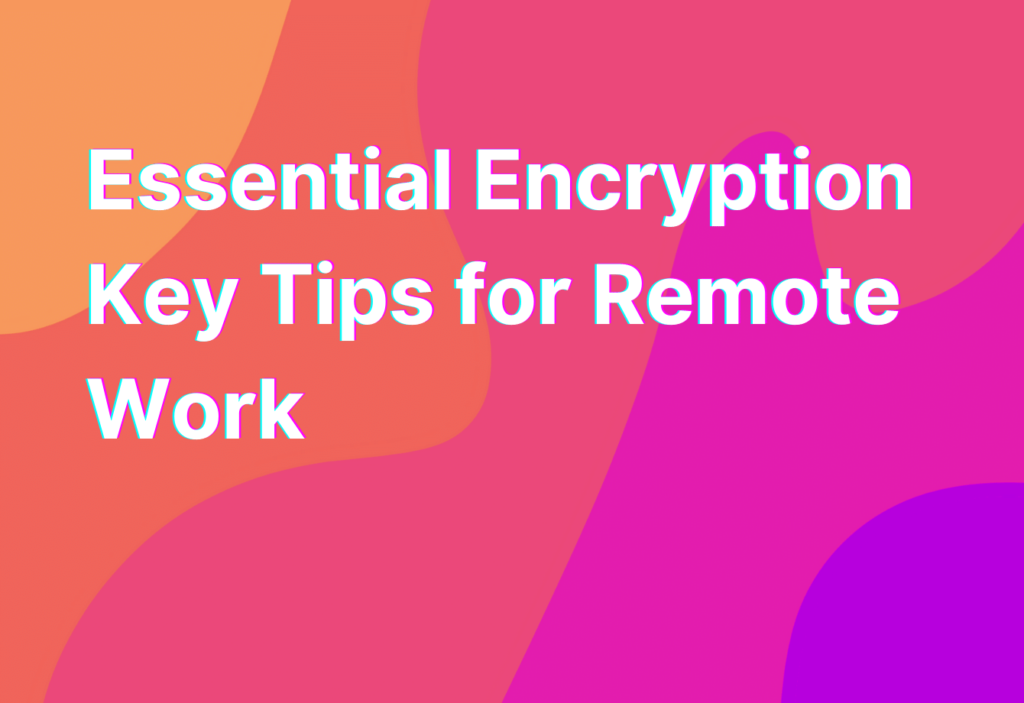Essential Encryption Tips for Remote Work
Hey there, remote workers! It’s Ashley, your friendly remote work advocate, here to share some essential encryption tips to keep your data safe and secure. In this digital age, where remote work is becoming the norm, it’s crucial to prioritize the protection of sensitive information. So, let’s dive right in and explore some encryption best practices!
1. Use Strong and Unique Passwords
Let’s start with the basics – passwords. I know, I know, we’ve all heard this a million times, but it’s worth repeating. Using strong and unique passwords is the first line of defense against unauthorized access. Avoid using common passwords like “password123” or your pet’s name (sorry, Fluffy!). Instead, opt for a combination of uppercase and lowercase letters, numbers, and special characters. And please, don’t reuse passwords across different accounts – one breach could compromise all your accounts!
2. Enable Two-Factor Authentication
Adding an extra layer of security to your accounts is always a good idea. Two-factor authentication (2FA) requires you to provide a second form of verification, such as a unique code sent to your phone, in addition to your password. This way, even if someone manages to crack your password, they won’t be able to access your account without the second factor. Many popular platforms, like Google and Facebook, offer 2FA options – so take advantage of them!
3. Encrypt Your Devices
Encrypting your devices is like putting your data in a safe with an unbreakable lock. It scrambles your data, making it unreadable to anyone without the encryption key. Most modern operating systems, like Windows and macOS, offer built-in encryption tools. Just make sure to enable them and set a strong passphrase. And don’t forget about your mobile devices – they contain just as much sensitive information, if not more!
4. Secure Your Wi-Fi Network
Working remotely often means relying on Wi-Fi networks outside of your control. To ensure your data is protected, it’s essential to secure your Wi-Fi network. Start by changing the default password on your router to something unique and strong. Additionally, enable WPA2 or WPA3 encryption, which provides a secure connection between your device and the router. And remember, avoid connecting to public Wi-Fi networks whenever possible – they’re a hacker’s playground!
5. Use a Virtual Private Network (VPN)
A VPN is like a secret tunnel that encrypts your internet traffic and routes it through a secure server. It adds an extra layer of protection, especially when accessing sensitive information or using public Wi-Fi networks. With a VPN, your data remains encrypted and your online activities are hidden from prying eyes. There are many reliable VPN services available, so do your research and choose one that fits your needs.
Wrapping Up
And there you have it, my fellow remote workers – some essential encryption tips to keep your data safe and sound. Remember, protecting your information is not just a good practice, it’s a necessity in today’s digital landscape. By using strong passwords, enabling two-factor authentication, encrypting your devices, securing your Wi-Fi network, and using a VPN, you’ll be well on your way to safeguarding your sensitive data.
For more tips on remote work security, check out our Essential Firewall Tips for Remote Work article. Stay safe out there, and happy remote working!


